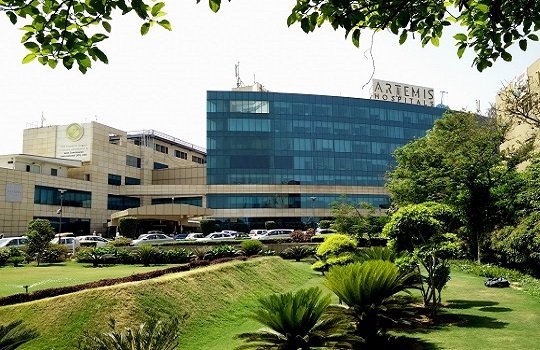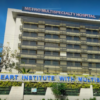Thyroid cancer is a relatively rare but treatable form of cancer that originates in the thyroid gland, a small butterfly-shaped gland located in the front of the neck. This cancer develops when cells in the thyroid gland undergo abnormal changes and begin to grow uncontrollably. Understanding thyroid cancer, its types, diagnosis, and treatment is essential for individuals at risk or facing a diagnosis.
Key Aspects of Thyroid Cancer:
- Types of Thyroid Cancer:
- Papillary Thyroid Cancer: This is the most common type, accounting for about 80% of all thyroid cancer cases. It usually grows slowly and has a high survival rate.
- Follicular Thyroid Cancer: Less common than papillary cancer, follicular cancer tends to grow into nearby blood vessels and may spread to other parts of the body.
- Medullary Thyroid Cancer: Medullary cancer is rare and can be associated with genetic mutations. It typically grows more slowly than papillary or follicular cancer.
- Anaplastic Thyroid Cancer: This is the most aggressive and least common type of thyroid cancer. It tends to grow rapidly and is challenging to treat.
- Thyroid Lymphoma: A very rare form of thyroid cancer that begins in immune system cells within the thyroid gland.
- Risk Factors: Risk factors for thyroid cancer may include a family history of thyroid cancer, exposure to radiation, certain genetic syndromes, and being female (as thyroid cancer is more common in women).
- Symptoms: Thyroid cancer may present with various symptoms, but it can also be asymptomatic in some cases. Common symptoms include a lump or nodule in the neck, difficulty swallowing, hoarseness, and swollen lymph nodes in the neck.
- Diagnosis: Diagnosis typically involves a combination of methods, including physical examination, imaging tests (ultrasound, CT scan), biopsy (fine-needle aspiration), and blood tests to measure thyroid hormones and markers like thyroglobulin.
- Staging: Staging is crucial for determining the extent of cancer spread and guiding treatment decisions. Staging may involve additional imaging tests, such as PET scans, and may range from stage I (localized) to stage IV (advanced).
- Treatment Options:
- Surgery: Most thyroid cancers are treated with surgery to remove part or all of the thyroid gland (thyroidectomy). Lymph nodes may also be removed if cancer has spread.
- Radioactive Iodine (RAI) Therapy: After surgery, RAI therapy may be recommended to destroy any remaining thyroid tissue or cancer cells.
- Thyroid Hormone Replacement: Individuals who have had their thyroid removed will require lifelong thyroid hormone replacement therapy.
- External Beam Radiation Therapy: This may be used in cases of anaplastic thyroid cancer or when cancer has spread to nearby structures.
- Targeted Therapy and Chemotherapy: These treatments may be considered for advanced or aggressive thyroid cancers.
- Prognosis: Prognosis for thyroid cancer is generally excellent, with a high survival rate, especially for papillary and follicular thyroid cancers. However, the outlook depends on the type and stage of cancer at diagnosis.
- Follow-Up Care: Regular follow-up appointments with an endocrinologist or oncologist are essential for monitoring thyroid hormone levels, checking for recurrence, and managing potential side effects of treatment.
Thyroid cancer is a highly treatable cancer, and early detection and appropriate treatment significantly improve outcomes. Individuals who suspect thyroid cancer or have risk factors should seek medical evaluation, and those diagnosed with thyroid cancer should work closely with their healthcare team to determine the most appropriate treatment plan.











